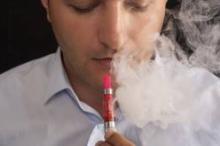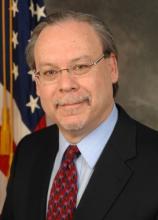SAN DIEGO – The country’s leading regulatory agency has as many questions about the potential health effects of electronic cigarettes as concerned clinicians do.
According to Mitchell Zeller, J.D., director of the Food and Drug Administration’s (FDA’s) Center for Tobacco Products, two key behavioral questions are who is using them and how they are being used.
"The only way to get answers to that is to fund the research to do it," he said during a press briefing at the annual meeting of the American Association for Cancer Research. "We’ve been funding research on e-cigarettes for a while and will continue to do that. As a regulatory maker, we’ll then make regulatory policy decisions based on what the science tells us."
The FDA does not currently regulate e-cigarettes, but the agency intends to issue a proposed rule extending its product authorities beyond cigarettes, cigarette tobacco, roll-your-own tobacco, and smokeless tobacco. "We’re very close to being able to announce [that] proposed rule," Mr. Zeller said.
He noted that if the subset of current smokers who are unable or unwilling to quit, substitute conventional cigarettes for e-cigarettes, "there’s a chance there could be a positive impact on public health. But the standard that Congress has given the FDA to implement and enforce – when that day comes that we do regulate e cigarettes – it’s going to be about the net population [impact], not just the subset of smokers unable or unwilling to quit. What if it turns out that the use pattern is not complete substitution but situational substitution, where an otherwise health-concerned, interested-in-quitting smoker is using e-cigarettes as a bridge to get from their last cigarette to their next cigarette? That would have a net negative impact on public health. It’s going to be the FDA’s job to figure out what the net of all of that is, but right now all of us in government and research have far more questions than answers when it comes to e- cigarettes."
"We understand that there are a lot of impatience and urgency around the issue," said Robert T. Croyle, Ph.D., director of the National Cancer Institute’s Division of Cancer Control and Population Sciences. Investigating the health effect of e-cigarettes poses certain challenges, "but we’re dedicated to expanding work in this area," he said.
Neither Mr. Zeller nor Dr. Croyle had relevant financial conflicts to disclose.



